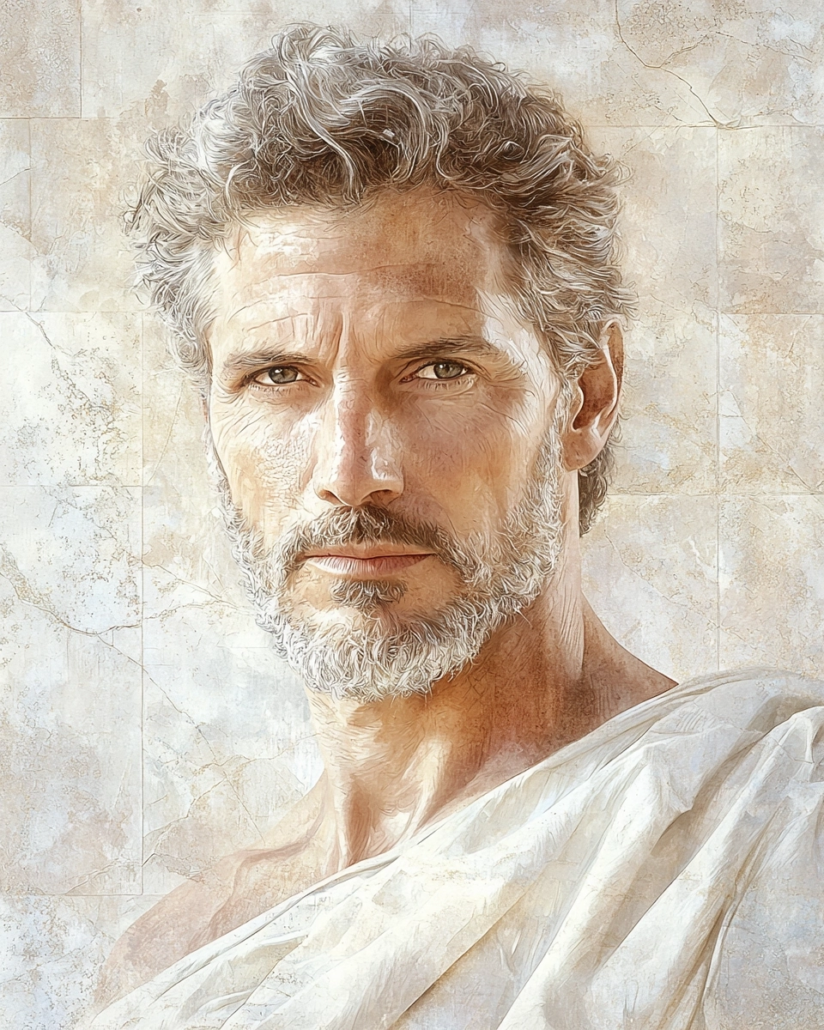Dionysius the Renegade: From Skepticism to Stoic Wisdom 🎭
A Stoic Turnaround
Dionysius the Renegade (born c. 3rd century BCE) was a philosopher known for his dramatic shift from Stoicism to Cyrenaicism. This unusual transition earned him the moniker “the Renegade.” His early Stoic teachings emphasized self-control and rationality, while his later life explored more hedonistic perspectives, creating a fascinating juxtaposition within his philosophical journey.
Historical Context and Influence
Dionysius was initially a student of Zeno of Citium, the founder of Stoicism. Born in Heraclea, he gained prominence in Athens, where he actively engaged with other philosophers. Despite his eventual divergence, his early works contributed to discussions on ethics and human nature within the Stoic framework. His life demonstrates the philosophical struggles of reconciling rigid principles with personal desires. Deepen: Wikipedia
Why are his teachings and life still relevant?
Dionysius’ life story is a compelling reminder that philosophical inquiry is not static. His transition between schools of thought reflects the dynamic nature of personal beliefs and the challenges of living a consistent ethical life. For modern audiences, his journey underscores the value of examining one’s convictions and adapting to new insights. Read more: Stoicism Today.
Key Teachings
Although Dionysius eventually moved away from Stoicism, his early teachings focused on:
- Self-control: Advocating for mastery over emotions to align actions with reason.
- Practical wisdom: Emphasizing the importance of rational thought in ethical decision-making.
- Resilience: Encouraging individuals to withstand external hardships with inner strength.
These ideas formed the bedrock of his philosophical exploration before his shift to hedonistic principles in Cyrenaicism.
Legacy
- “Dionysius’ departure from Stoicism provided a critical perspective on its limitations.”
- “His early Stoic teachings influenced subsequent debates on ethics and human desires.”
- “By challenging established norms, he inspired later thinkers to question rigid philosophical frameworks.”
Stoic cardinal virtues that he embodied
- “Courage – in challenging established beliefs and exploring new philosophical paths.”
- “Wisdom – in engaging deeply with Stoic principles before redefining his own.”
- “Resilience – in navigating personal and philosophical contradictions.”
- “Honesty – in acknowledging the limitations of his initial beliefs.”
Quotes attributed to him
- “Philosophy is not about agreeing but about questioning.”
- “What good is reason if it cannot address the desires of the heart?”
- “A life unexamined is incomplete; a life unchanged is unfulfilled.”


